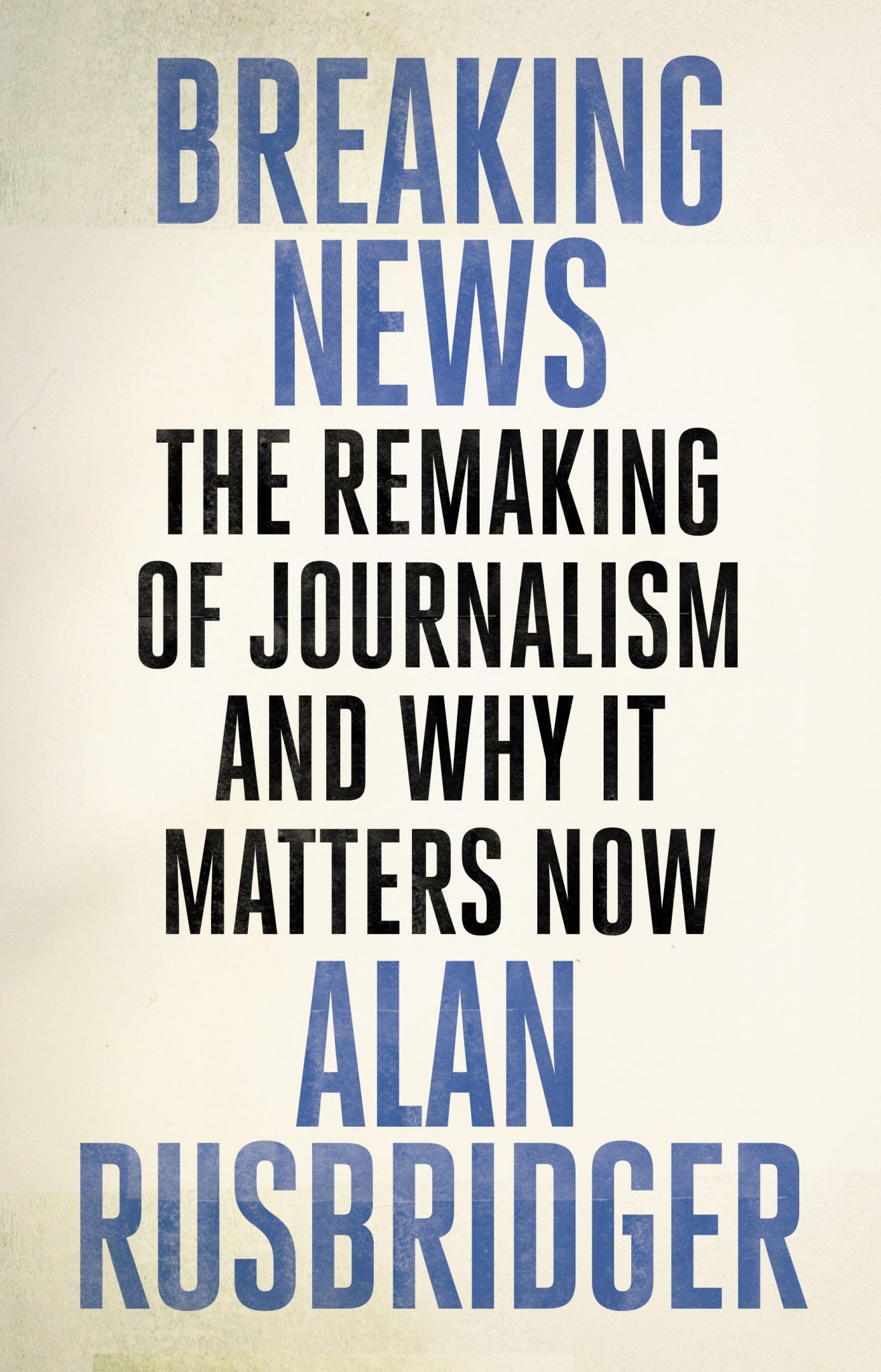In 2017 there was a surprising addition to the bestseller lists – George Orwell’s 1948 satirical novel Nineteen-Eighty-Four. It lampooned wartime propaganda, which turned lies and truth, war and peace, friend and foe upside down just the way Trump’s America seems to be doing 70 years later. “Before mass leaders seize the power to fit reality to their lies, their propaganda is marked by its extreme contempt for facts as such, for in their opinion fact depends entirely on the power of man who can fabricate it,” writes Hannah Arendt, in her book The Origins of Totalitarianism. She could have been writing of Trump.
British newspapers for decades have been partisan, reflecting the political tendencies of their owners and skewing the news accordingly. Alan Rusbridger was editor of the famously po-faced The Guardian between 1995 and 2015. This book is both a memoir of his life in journalism, starting with the days covering church fêtes in a local newspaper, and a record of the upheavals in newspapers as hot metal was replaced by what was once quaintly called “new technology”.
This book is also an examination of how journalism can be remade and why it matters now, in the era of “fake news”, more than ever. “A simplified media (with fewer newspapers) could lead to a simplified politics,” writes Rusbridger.
And what a revolution the press has experienced in the last 20 years. Labour-intensive newspaper production was revolutionised by the digital world and the internet. Social media could make anyone a journalist even when they had scant regard to fairness, truth, or the laws of libel. Some newspapers, like The Guardian, rode the internet wave but even it saw readership, advertising, and profits slump. Why buy a dead-tree newspaper when you can get the same news online for free? Why read depressing news at all when you can fill time on your mobile shopping for shoes and watching the antics of cats?
Now it’s difficult to determine what’s real news and outright lies posing as news. “In a sense Donald Trump has done journalism a favour,” writes Rusbridger. “In his cavalier disregard for truth he has reminded people why societies need to be able to distinguish fact from fiction”.
Without a billionaire proprietor and shareholders demanding increased profits, The Guardian was uniquely placed to take a risk and develop what was to become one of the most admired news websites in the world. The Guardian is owned by the Scott Trust, named after the editor/proprietor who “gave the paper away” on his death in the 1930s rather than see it swallowed up by a press baron with hidden agendas.
It was John Scott’s famous aphorism that encapsulated the ethos of the paper. “Comment is free but facts are sacred”. The newspaper expanded when it moved to London in 1961 to become the leading, left-leaning quality national. Its readership was often lampooned as Islington geography teachers.
Then in 1998 Guardian Unlimited was launched. Ahead of the curve, The Guardian’s website was the go-to source on 9/11 when it received 2.5 million “impressions” a day from people wanting to know what was going on and why.
The question always in the background was “how can we monetise web content?” Rusbridger writes: “In the old world, advertisers had only a rough sense of who was reading what. In the new world, every advertisement was measured on the effectiveness of its response”.
Live blogging proved compelling to early audiences and the paper struggled to integrate the digital with print. Tantalisingly sparing on The Guardian’s involvement in the uncovering of the newspaper phone hacking scandal Rusbridger probably contends that there are other sources for the full story. And he rather gets bogged down in the endless chase for website revenue – The Guardian is “(almost) the most popular serious English-language website in the world,” says Rusbridger without recourse to clickbait and celebrity trivia. It also has a global 24/7 operation with an office in New York. There is no paywall.
He says that today “is a time of journalism’s greatest crisis”. There are no easy answers, however. As Rusbridger argues in this absorbing and relevant book, “journalists have to win the argument that there is a category of information – let’s call it ‘proper’ news – which is better than, and distinct from, all other stuff out there”.
